How Long Does Tea Last?
When you buy through our links, The Breslin may earn an affiliate commission. Learn more
And, I’m back! My topic today is pretty familiar to you- “ How Long Does Tea Last?”
One day, I imagined that I got lost in the royal parade palace where everyone was drinking an excellent beverage luxuriously. And, it’s no surprise that tea was a gourmet drink at that time.
Until now, tea has been popular in every niche, street, and shop. It is the preferred choice for tea lovers, and honestly, I am one of the most tea lovers, too. The reason is that it provides many varieties and gourmet teas.
Besides drinking tea, you must be concerned about the shelf-life of tea, right? You possibly want to know more about the origin, expiration date, types of tea, and so on. Everything you need here!
What you are waiting for! Let’s move on.
Amazing Facts
Are you curious about tea? There are many interesting tea-related facts that I will share with you in this part. Now, let’s get started!
Tea is a common beverage prepared by pouring hot or boiled water into the fresh leaves. In the past, tea was considered a luxury and exclusive good that merchants bought and sold for the upper class.
Besides, in the past, the process of making tea was quite difficult and strenuous. It took a long term to deliver a perfect tea leaf. Tea was harvested, steamed, shaped, and dried.
Through many centuries, the process of tea has been improved based on applying state-of-the-art techniques, which brings a remarkable breakthrough in distributing tea to other classes in society and spreading it to other nations.
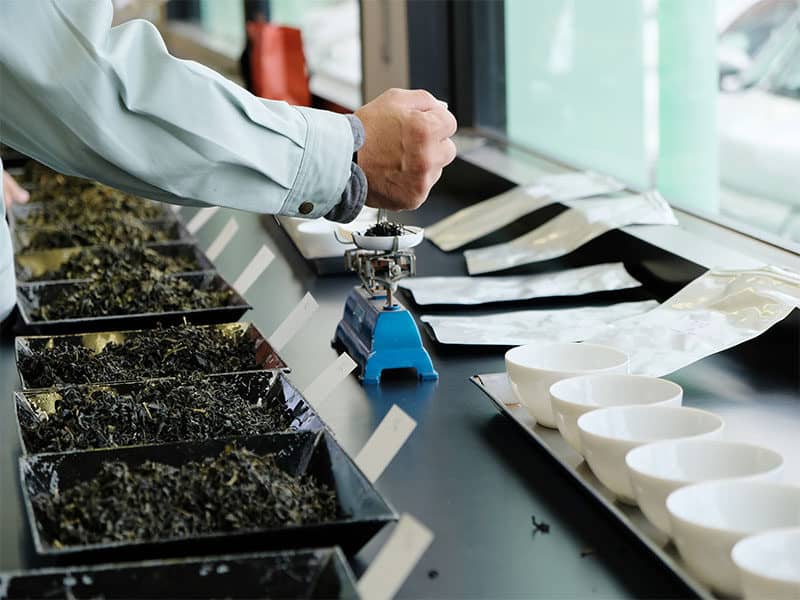
Where Does Tea Come From?
Are you ready to move on this part? The information below may help you to open a new horizon to the origin of tea.
As far as I am concerned about the history of tea, the first version was invented in China, though it’s quite hard to give exact proofs of which country tea comes from.
Then tea was shipped to European nations, and it quickly became a fashionable drink in both Europe and Asia, including Japan, England, and more.
What Kinds Of Tea Are There?
Here are some surprising facts about how many sorts of tea are there, which is separated by their flavor. Let’s read and collect your own information.
In fact, every nation has every type of tea. So, there are more than 20 000 different teas.
Of late, many processes of tea are applied with modern techniques, which brings several genres, tastes, ingredients, and different recipes.
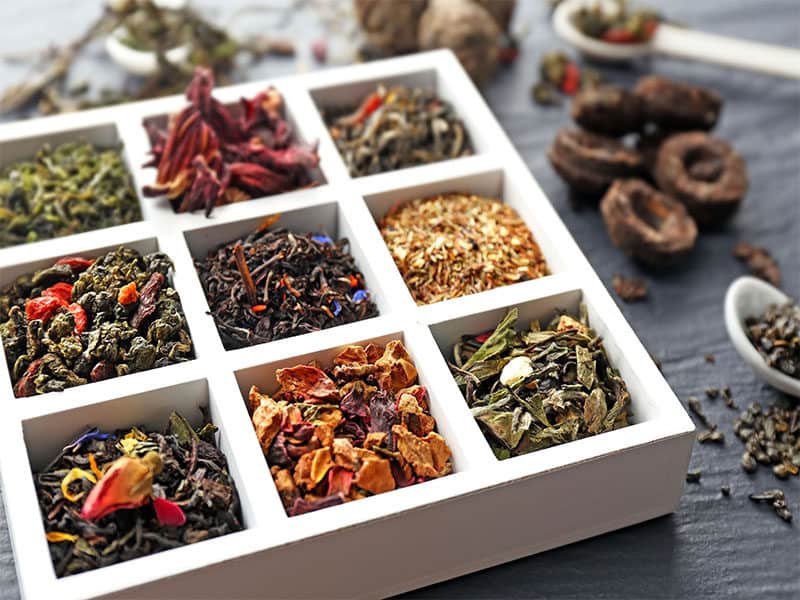
There are two main kinds of tea: true teas and herbal ones.
True teas consist of green tea, Matcha, black, and white tea. It’s simply derived from a special tea plant.
- Green tea
Green tea is a common name with tea-lovers due to its taste. It is also a true tea in China, then it is produced and spread to other countries in East Asia.
Besides, green tea helps you have a slim body, supports metabolism, maintains alertness, and brings an unforgettable flavor. Significantly, the aroma of the best green tea will give you a deep impression. - Matcha tea
When saying Matcha, I cannot neglect its unique Japanese style. Matcha tea is grown in the shade by removing the fibrous veins and stems from its leaves. Then the tea leaf is milled until it becomes a powder called Matcha. - Black tea
Black tea comes from China, but its popularity is commonly consumed in Western countries due to its outstanding tastes and purposes. - White tea
White tea is known as a delicate drink due to its special manufacturing process. It’s harvested before leaves are fully opened.
Based on this minimal process and low oxidation, it brings a fresh and mild flavor to you. Besides, you may also taste the best white tea for health due to its several varieties and affordable premium tea leaves
And another type of tea is herbal tea.
Herbal tea is totally different compared to true teas. It is made of dried fruits, flowers, spices, or a variety of herbs.
Herbal tea is a name of tea that includes many other plants, various flowers, leaves, chamomiles, peppermint, rooibos, lavender, ginger, and others. However, each ingredient has its own flavor that brings a distinctive smell compared to other true tea.
Besides, rooibos, peppermint, and chamomiles can make a separate tea that brings a variety of flavor, smell, and ingredients.
Differences Between Loose-leaf Teas And Tea Bags
In this part, brief information about loose-leaf teas and tea bags will be mentioned.
There are two main forms of tea: loose-leaf teas and tea bags. Today, I will discuss what factors are different between the two given teas.
Loose-leaf tea is a superb high-quality tea. It is usually fully leaf or cut into small pieces, but you can see what shape they are. It is less processed, so it probably remains its original flavor of tea leaves.
Teabags are a common form in the market due to their benefits. They are made of botanical plants that are cut into very small pieces. Then insert these tiny pieces into a bag after being processed. So, teabags are less aromatic than loose-leaf teas.
A comparison below will help you visualize easily.
| Forms | Loose-leaf teas | Teabags |
| Processing | Less-produced | Mass-produced |
| Steeping times | Multiples times | Once or twice |
| Convenient | No | Yes |
| Value | High quality | Inexpensive |
| Brewing time | More time and effort | Less time and effort |
Why Does Tea Leaves Expire?
It’s important to know clearly about tea leaves’ expiration. But, do you know the reasons why they last for a fixed length of time? In this part, I will help you to answer this question.
Tea leaves also have an expiration date due to many factors. One of the main important factors is storage conditions. If tea leaves contact with air, heat, and water, they will be mold growing and contain harmful microorganisms.
Other things that can affect tea leaves expiration include impurities, small bacteria, dust, or dirty. These factors can lead to faster expired tea leaves.
Does Loose-leaf Tea Expire?
You are interested in the quality of tea that you consume, aren’t you? This section will provide you with loose-leaf tea expiration.
Being high-quality and valuable products, the popularity of loose-leaf teas is rising. So, the matter related to tea ages is also highly concerned.
Actually, loose-leaf teas also have an expiration date. Even though they are high-grade teas, they are advised to use before the expiry date; otherwise, they will go bad and lose their flavors, colors, and their aroma.
Sometimes, loose-leaf teas are sold in paper bags. And if you can store them in airtight containers, dried and dark environments, they are used in a year.
Finally, just like the other drink, loose-leaf teas are best to drink before the best-by date.
Does Tea Bag Expire?
Another type of tea is teabags. Now, let’s dig into how long tea bags expire.
Since there are many boxes with tea bags inside, I am really concerned about how long I can keep them. And you must be curious about this, right?
The answer is one or two years past the expiration date if they are stored properly. As tea bags are dried and kept in airtight containers, they are totally safe for long-term usage.
If tea bags are kept in a cool and dark place regardless of moisture and bugs, they do not expire or go stale. However, their taste is probably reduced or even lost.
Hence, it should be better to consume these tea bags before the best-by-date to keep their flavor and gain beneficial values.
How Long Does Tea Leaves Last?
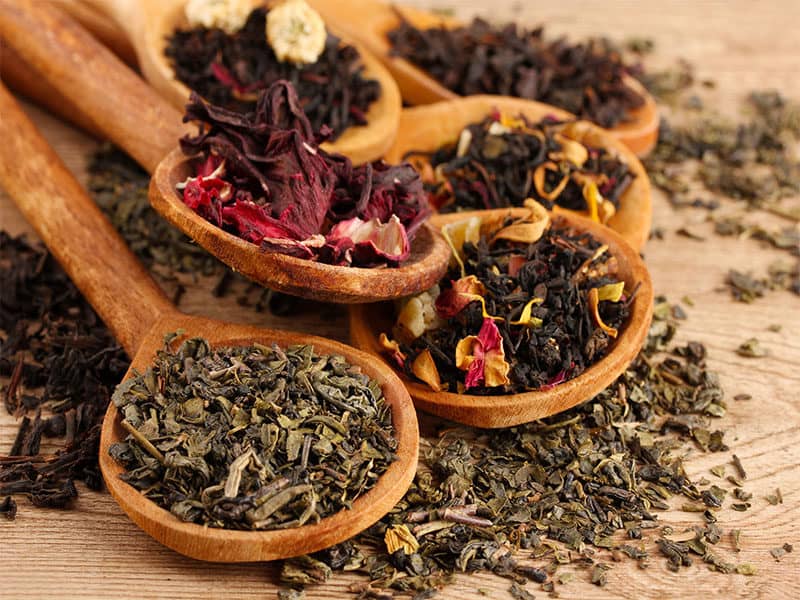
Now, it’s time to find out the answers to tea expiration. Depending on every tea, the expiry date is various. Keep reading to explore together!
There are several types of tea, which means the expiration of tea is various. To concisely, I will mention the expiration of five main types of tea.
However, the expiration date mentioned below will apply for only loose-leaf teas. Most tea bags have a shorter shelf-life. The best-by date or expiration of teabags depends on what date you open the package. (You can see the nutrition facts on each package)
- White tea: is normally considered a valuable beverage due to its ingredients and health benefits. It’s also used as helpful medicine to treat some health conditions. So, if it is stored properly, it lasts 2 years. After that, its flavor becomes tasteless, and the aroma gradually disappears.
- Black tea: can be fresh in more than 18 months if stored in bulk or compact nature. When it is contained in an airtight environment, 3 years is the expiration date.
- Green tea: is a common beverage for diets. It will lose the flavor after 3 years. Please keep it away from heat, sunlight, and wet places to prolong its age.
- Matcha: is best to use within 1-2 months when opening. And it lasts up to 1 year on the shelf.
- Herbal tea: will be dried, vacuumed air, and kept in airtight bags. You can enjoy the best herbal teas within 2 years before their flavor disappears.
Although these teas have their own expiration, if you want to have a delicious and fresh drink, use it within 6 months.
The unprepared tea leaves will last 1-2 years in the freezer. In case you have opened the package, keep your teas in the fridge. Brewed teas will last 2-5 days in airtight containers.
The table below will sum up all information to help you know clearly.
| Types | Unprepared tea leaves in the pantry | Unprepared tea leaves in the freezer | Prepared tea leaves in the refrigerator | Prepared tea leaves in the freezer |
| White tea | 6-12 months | 2 years | 2-5 days | 6-8 months |
| Black tea | 6-12 months | 3 years | 2-5 days | 6-8 months |
| Green tea | 6-12 months | 3 years | 2-5 days | 6-8 months |
| Matcha | 6-12 months | 1-2 years | 2-5 days | 1-2 months |
| Herbal tea | 6-12 months | 2 years | 2-5 days | 6-8 months |
How Long Does Brewed Tea Last?
It cannot be denied that brewed tea also has an expiration date. Once the tea is brewed, its flavor and nutrition start to lessen. So, it’s necessary to know how long brewed tea can last.
Sometimes, you brew a lot of tea that you cannot consume at one time. And you worry that brewed tea can go bad, right? However, there is some golden time that you can keep your tea longer once it’s been brewed.
In The Pantry
At room temperature, brewed tea is kept in the pantry for no longer than 8 hours. The reason is that tea will be oxidized, and mold will start growing. Furthermore, you should remember to cover your brewed tea tightly to prevent air exposure.
In The Fridge
On the other hand, tea will last longer if it is kept in the fridge. After one day, it starts losing its taste and changing its texture, which affects the quality of tea’s flavor. However, it can be used for up to 3 days with airtight containers.
How To Tell If Tea Goes Bad?
Sometimes, tea leaves may go stale and cause negative impacts on your health. In this part, there are some tips that I will help you to avoid these situations.
Although there are not many tests to improve how quality tea leaves become, you can do your own experiments and give appropriate evaluation. Taste, smell and look at what changes your tea may have.
Based on your senses, you can realize what color tea leaves are, what flavors tea tastes like, and so on. In case your tea has obvious mold or is discoloration, it is not good for us. And if it has gone bad, the aroma of tea will be lost.
Besides, if your tea package has some surrounding moisture, stop using it.
How To Store Tea Leaves?
This part is probably your interest due to its importance. You will know how to keep tea leaves tasting better for longer and fresher.
As I have mentioned, how properly you store tea leaves, the longer they will last. And in the ensuing paragraph, I will share some precise tips to prolong tea leaves’ shelf-life.
- Store in Airtight, Stainless Steel Containers. Air should not contact tea leaves to keep them away from mold, fungi, and harmful bacteria. You should not use plastic or glass containers as well, and paper bags can be replaced instead. Remember to keep the bags tight with no air inside.
- Store at Dry and Dark Places. Keep your tea leaves away from wet and sunlight. These factors may affect tea’s flavors. It should be better to keep tea leaves at room temperature.
- Store in A Humid-Free Environment because tea leaves may become moldy in these conditions.
What Can You Do With Your Expired Tea?
As I have mentioned, expired teas should not be consumed for any purpose. But, they also have other special functions. Are you eager to know it? Let’s start reading right now.
Honestly, you probably do not know what to do with old tea bags, don’t you? I have good news for you. You can make use of these expired tea bags to make your life easier.
Here is the list of outstanding functions of using unused tea bags:
- Remove Shoe Odor. Just put some dried tea bags into your shoes to remove unwanted scents. The secret here is that tea bags can absorb moisture and smell inside.
- Clean Up Your Kitchen. You must be crazy about tough stains in dishes. These tea bags can help you to get rid of them with warm water. You can add some tea into your water to break up any grease as well.
- Clean Up Mirrors and Windows. The tannic acid in black teas can help you to do these tasks more effectively. You can steep black tea and put the cooled tea into a spray bottle. Your mirrors and windows will become new ones in a minute.
- Reduce Puffy Eyes. Some circles under your eyes will make you pessimistic. And the best tip is to cool these old tea bags and put them on both of your eyes. Green teas and black teas are advised to use in this situation.
- Avoid Pests. If you are afraid of ants, moths, rats, or other pests, peppermint tea bags will help you repel them. This also helps your plants from fungal infections. More importantly, different types of tea will repel different pests. Use a drop of oil to strengthen tea flavors.
Benefits And Drawbacks Of Drinking Tea
I will discuss both sides of drinking tea in this section. I hope this will be useful to you.
Benefits
There are several reasons why you should drink tea regularly. One of the main benefits is good for both physical and mental health. Let me list some potential pros for you.
- Medicine for preventing heart diseases, diabetes, diarrhea, and cancer.
- Medicine for supporting digestion systems.
- Medicine for reducing headaches.
- Good for controlling sugar blood and high blood pressure.
- A useful beverage to sleep better, fight anxiety, and lose weight.
Drawbacks
However, if you drink too much tea, the level of caffeine may cause insomnia. That leads to increased anxiety, stress, and poor sleep. Significantly, it can cause some complex damages to pregnant women.
More importantly, you can depend too much on caffeine in teas if you drink it more than the moderate levels. This leads to several relevant symptoms that affect health negatively.
FAQs
Besides the aforementioned interesting facts, I think some of the questions below will make you gain more knowledge about tea.
Tips For Making The Best Teas
In the final part, I will share with you some useful tips to make teas.
The fundamental rule to make the best teas is a combination between quality teas and precise steeping time.
Let’s think about how beneficial high-quality teas bring. So, please choose the best teas, and your drink will be perfect due to their flavor, aroma, and huge health benefits.
In terms of steeping time, teas should be steeped at a certain time. For white and green teas, the best time to steep is about 1-2 minutes, while black teas need 2-3 minutes. As regards herbal teas, the steep time lasts 3-6 minutes to taste the best flavors.
Besides, the temperature is also important. It depends on each kind of tea. The temperature to make teas ranges from 150°F to 210°F. Therefore, it’s necessary to find out what temperature each kind of tea is to make it better. You can see it on the label of tea packages.
These are some tips that I always use in my daily beverage. If you have any helpful information or techniques, do not hesitate to share them with me via comments. And do not forget to share this article with your relatives who are fond of teas.

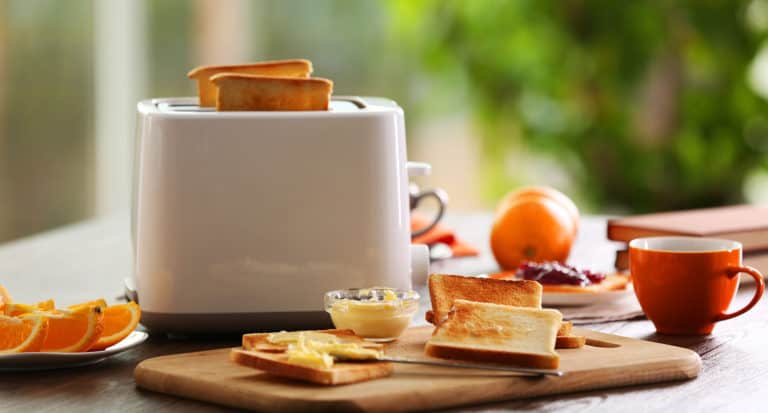
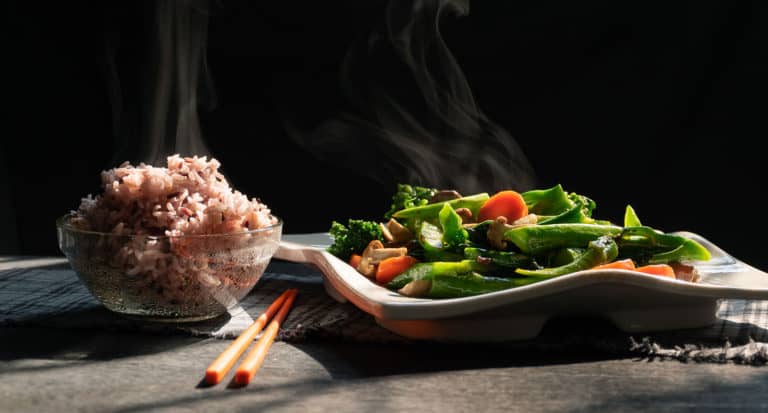
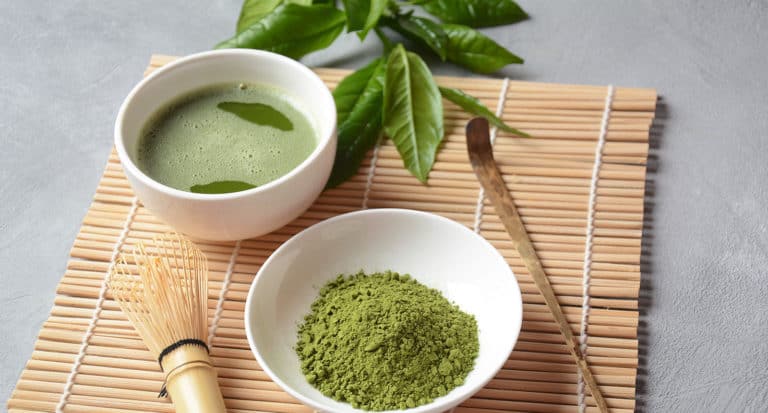
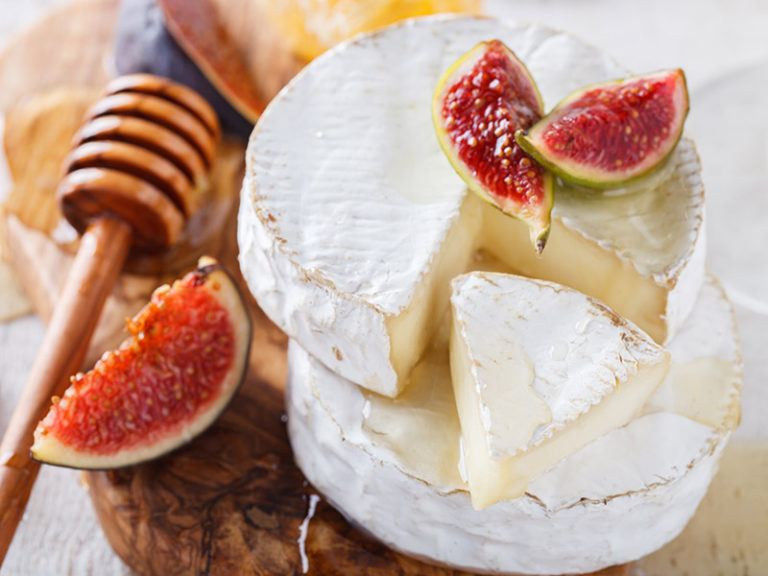
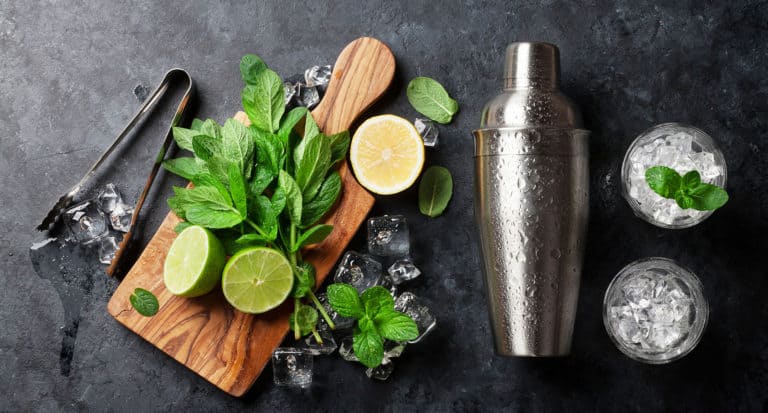

Amanda Collins
Founder and Senior Culinary Editor
Expertise
Culinary Arts and Management, Food Journalism and Critique, Recipe Development and Testing, Global Culinary Traditions, Sustainable Food Practices
Education
Institute of Culinary Education (ICE), New York, NY
Program: Diploma in Culinary Arts
Focus: Intensive hands-on training in culinary techniques, recipe development, and kitchen management, preparing students for professional roles in the culinary industry.
Monroe College, New Rochelle, NY
Program: Associate in Applied Science in Culinary Arts
Focus: Practical culinary skills, including cooking techniques, menu planning, and kitchen operations, with an emphasis on hands-on experience and industry standards.
Amanda Collins is a seasoned chef and food editor with a deep love for global flavors. Trained at the Institute of Culinary Education and Monroe College, and with over 15 years in the culinary field, Amanda has refined her skills in kitchens worldwide. Her background in food studies gives her a unique ability to share both recipes and the cultural stories that shape them.
As senior culinary editor at thebreslin.com, Amanda’s work brings authentic dishes to life, inviting readers to explore new flavors and techniques from around the globe. Her approachable style makes it easy for anyone to bring a bit of the world’s cuisine into their kitchen.